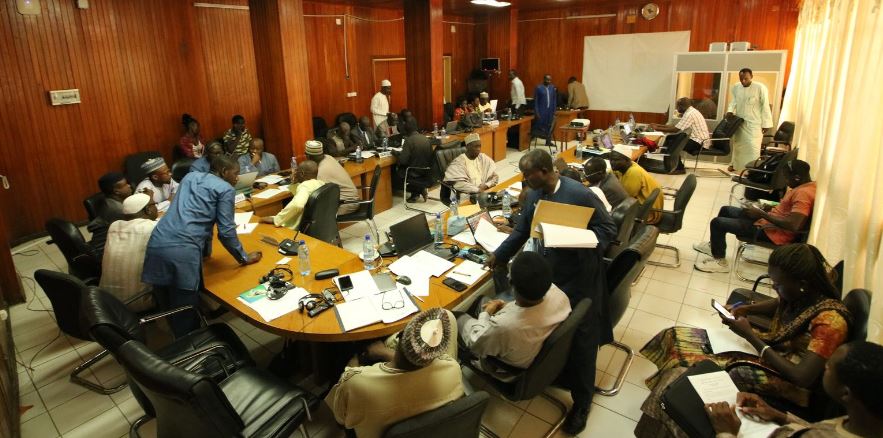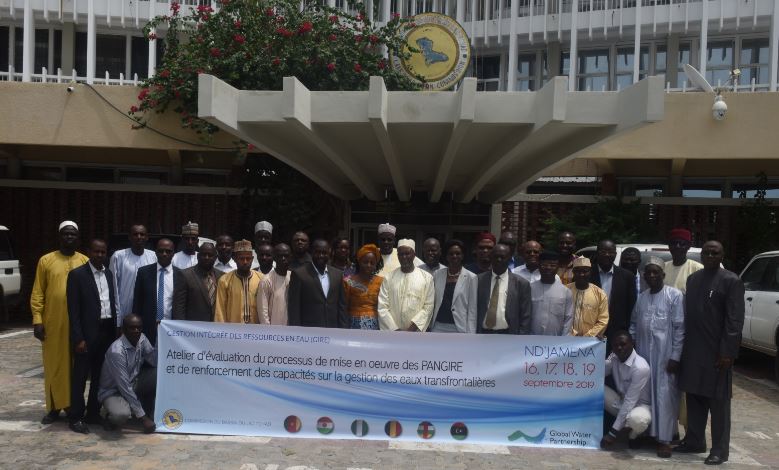The Lake Chad Basin Water Charter was officially adopted on 30 April 2012, in N'Djamena, Chad, by the six member states of the Lake Chad Basin Commission (LCBC). One of its objectives is the sustainable development of the basin through integrated, equitable and concerted management of the basin's natural resources and waters. Like all other legal documents, the Charter is a simple expression that can only be effective if it is faithfully implemented and respected.
In order to facilitate its effective implementation, the LCBC's Environment and Water Resources Directorate decided to organize a capacity-building workshopfor its Experts, Managers and Focal Points to support the uptake of the Charter and of the concept, principles and implementation approach of Integrated Water Resources Management (IWRM). Funded by the LCBC, with technical support from the GWP-CAf, the workshop was held from 16 to 19 September 2019 in N'Djamena, Chad, and was attended by about 30 participants including 3 GWP-CAf experts (Mr. Hycinth BANSEKA, Coordinator of GWP-CAf, Mr. Aboukar Mahamat, Coordinator of ACEEN (GWP partner in Cameroon) and Mr. Armand K. Houanye, Coordinator of GWP West Africa, who came on behalf of GWP-CAf).

Discussions between participants during group sessions
Despite the commitments related to concerted and coordinated water resources management in the basin, in the Water Charter, many Member States of the Lake Chad Basin are introducing new institutional and infrastructural arrangements for water resources management without considering the management of the impact on other countries.
This workshop was therefore an opportunity for experts and officials from LCBC countries to have a common understanding of the few commitments of the Water Charter related to IWRM, and to exchange on strategies to operationalize these commitments. Mr. Aboukar Mahamat, highlighted the key role of participation in the engagement of women and vulnerable people: "Effective stakeholder participation in the management and sustainable development of water resources is critical to promote "gender awareness". During the workshop, exercises and working groups, led by GWP-CAf, were used to learn from the experience of all participants and bring them to the same level of understanding of IWRM.
At the end of the workshop, the participants to the training made important recommendations including:
- adopt a sub-basin approach in the development and implementation of LCBC activities;
- undertake actions to ensure the effectiveness of the "entry into effect" of the water charter already ratified by 4 Member States, such as (i) the deposit of instruments of ratification by Cameroon, Nigeria, Niger and Chad (ii) the ratification of the charter by the Central African Republic.
